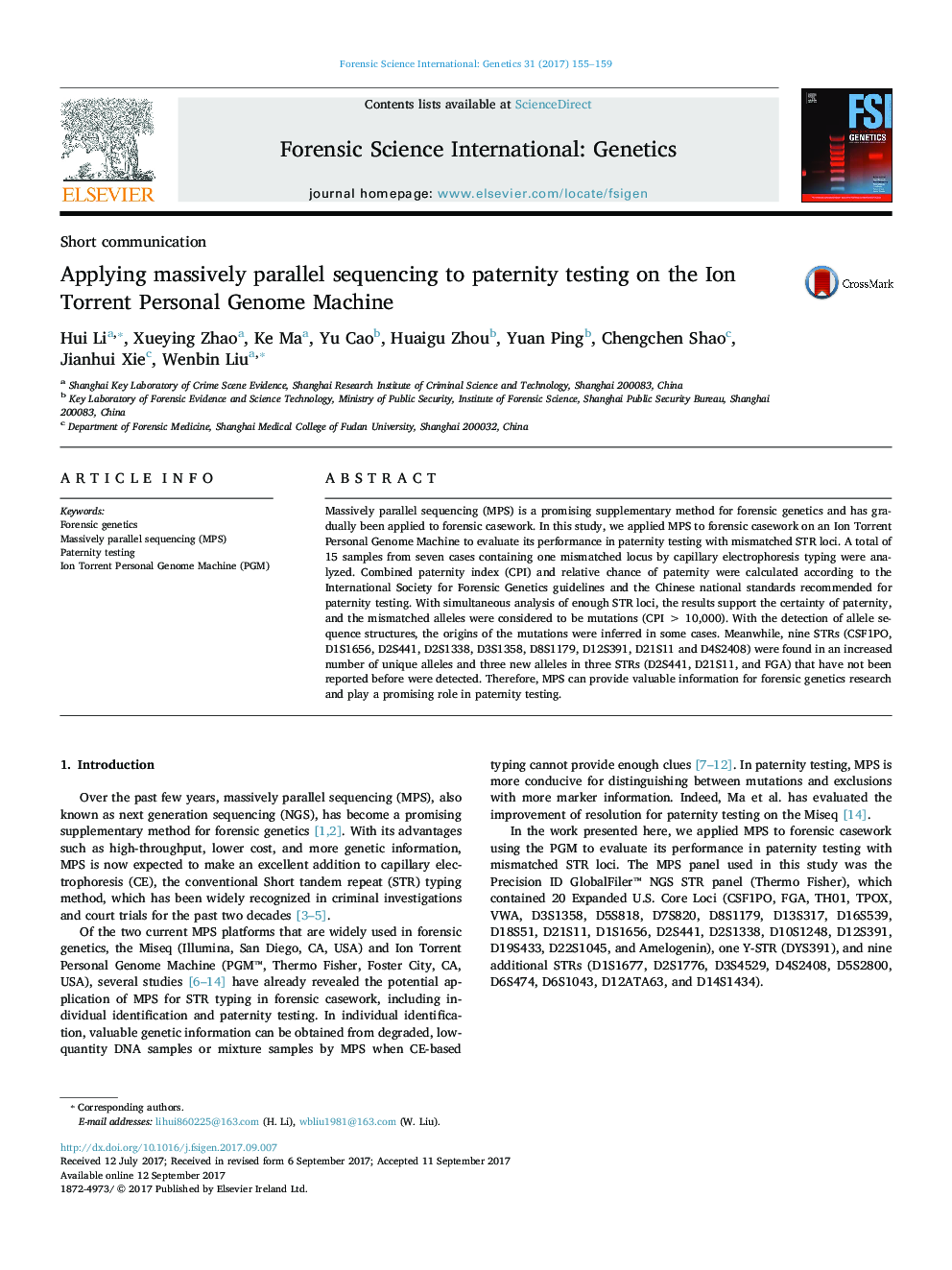| Article ID | Journal | Published Year | Pages | File Type |
|---|---|---|---|---|
| 6462701 | Forensic Science International: Genetics | 2017 | 5 Pages |
â¢MPS was applied to paternity testing with mismatched STR loci on the Ion Torrent PGM platform.â¢The origin of the mutation can be inferred from the allele sequence structures detected by MPS in some cases.â¢Nine STRs demonstrated an increased allele number obtained by MPS typing compared to CE typing.â¢Three new alleles in three STRs (D2S441, D21S11, and FGA) that have not been reported before were detected.
Massively parallel sequencing (MPS) is a promising supplementary method for forensic genetics and has gradually been applied to forensic casework. In this study, we applied MPS to forensic casework on an Ion Torrent Personal Genome Machine to evaluate its performance in paternity testing with mismatched STR loci. A total of 15 samples from seven cases containing one mismatched locus by capillary electrophoresis typing were analyzed. Combined paternity index (CPI) and relative chance of paternity were calculated according to the International Society for Forensic Genetics guidelines and the Chinese national standards recommended for paternity testing. With simultaneous analysis of enough STR loci, the results support the certainty of paternity, and the mismatched alleles were considered to be mutations (CPIÂ >Â 10,000). With the detection of allele sequence structures, the origins of the mutations were inferred in some cases. Meanwhile, nine STRs (CSF1PO, D1S1656, D2S441, D2S1338, D3S1358, D8S1179, D12S391, D21S11 and D4S2408) were found in an increased number of unique alleles and three new alleles in three STRs (D2S441, D21S11, and FGA) that have not been reported before were detected. Therefore, MPS can provide valuable information for forensic genetics research and play a promising role in paternity testing.
